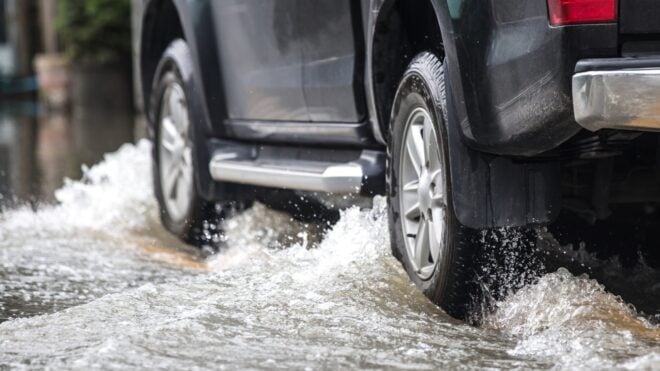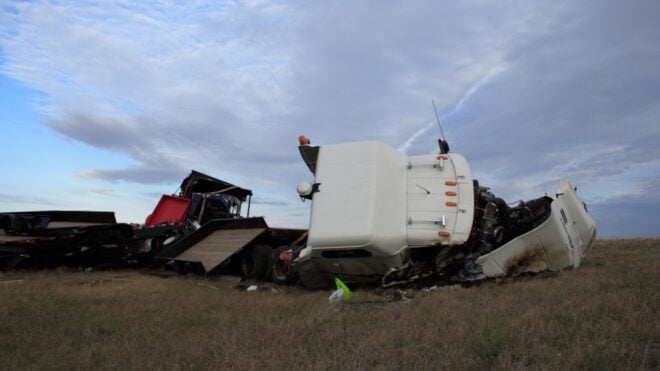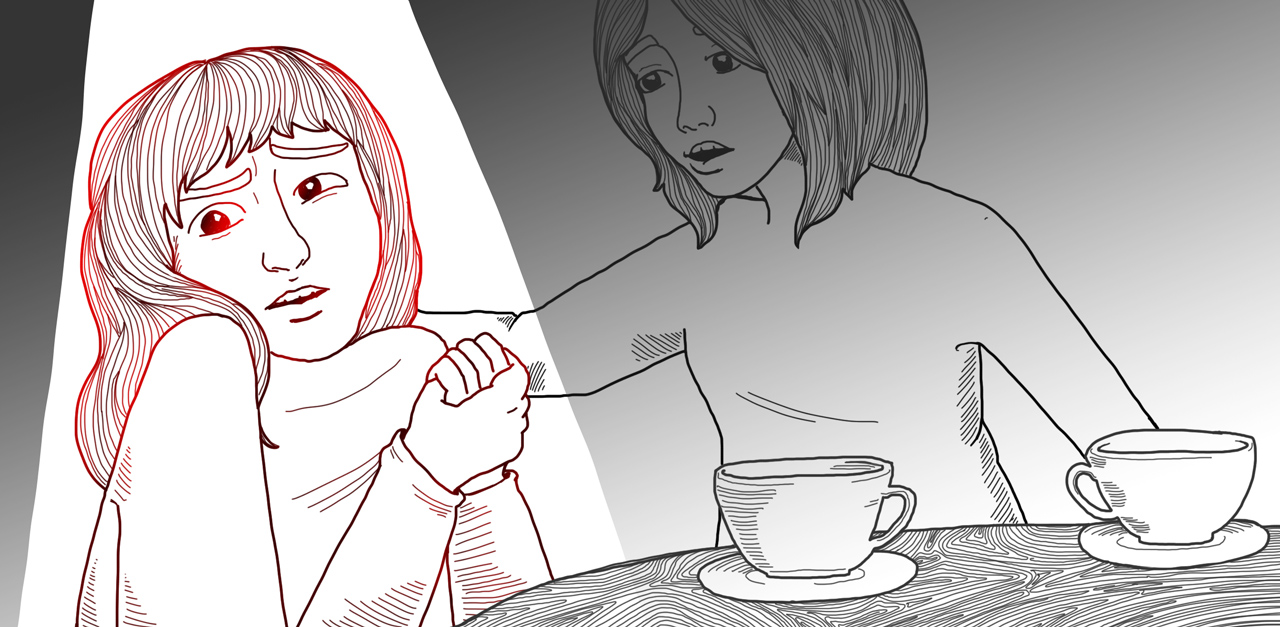
I was only 10 years old when I had my first panic attack. Of course, I didn't realize that's what was happening, but looking back I recognize it for what it was.
My pulse started racing, I felt like I was going to throw up, my head was pounding, and I couldn't seem to control my thoughts. I was terrified.
My parents and little brother, who I was with at the time, had no idea what to do.
When someone near you is having a panic attack, it's hard to know how to react. Should you tell them everything is going to be fine? Should you encourage them to take deep breaths?
Nobody ever wants to make things worse for a friend having a panic attack, so it's important to know what to say.
Read below to learn more about helping someone having a panic attack.
Photos: Pexels / Kat Smith; Laura Caseley for LittleThings
What Is A Panic Attack?
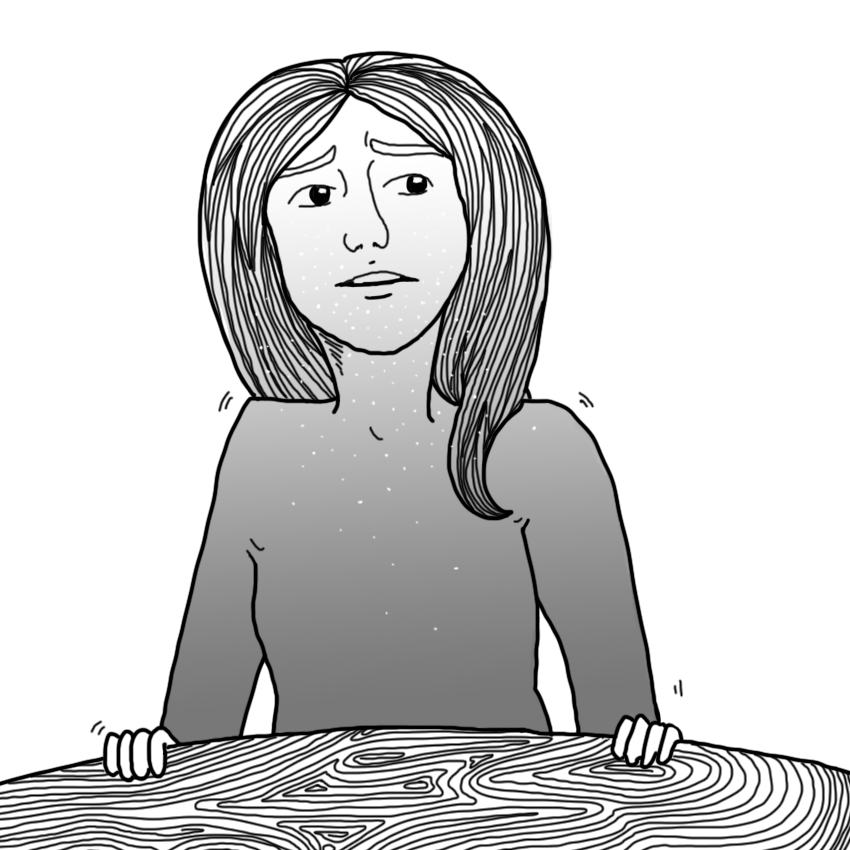
According to the Mayo Clinic, "A panic attack is a sudden episode of intense fear that triggers severe physical reactions when there is no real danger or apparent cause. Panic attacks can be very frightening. When panic attacks occur, you might think you're losing control, having a heart attack or even dying."
A lot of people experience panic attacks just a few times in life, but if you have them more often, it may be a condition called panic disorder.
How To Recognize If Someone Is Having A Panic Attack
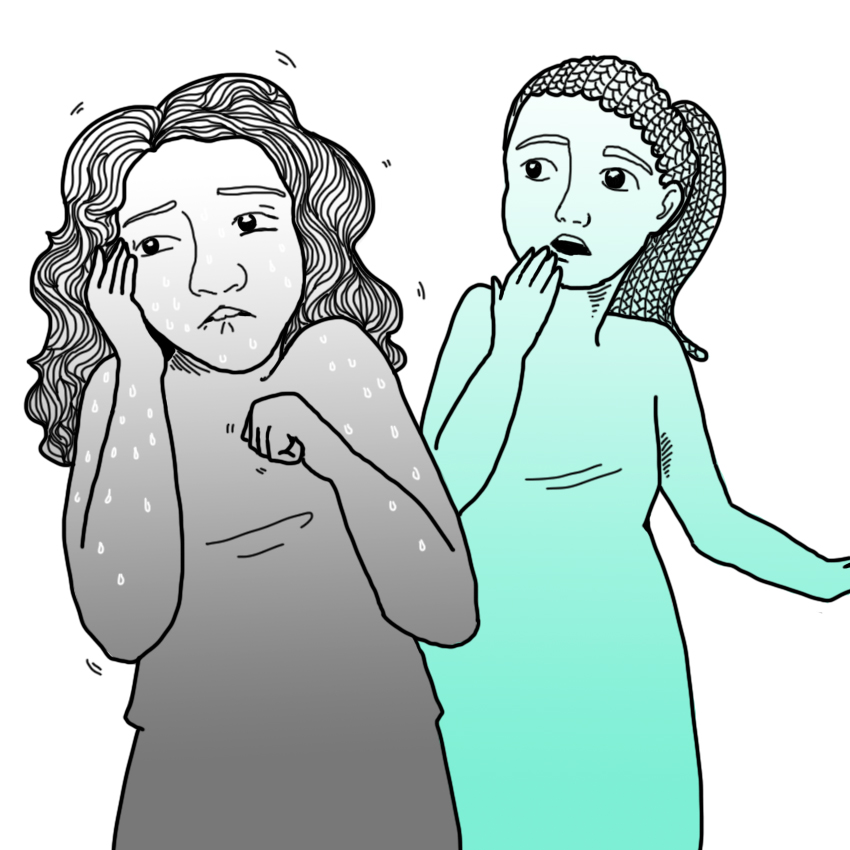
It's not always easy to know when someone is having a panic attack, because its symptoms are primarily mental.
The Mayo Clinic explains that many people also have physical symptoms when they have panic attacks, which can include anything from chills and hot flashes, to abdominal cramping and nausea, sweating, lightheadedness, and trembling.
Someone having a panic attack may look fearful, distant, or out of it. They might start shaking, sweating, breathing heavily, or display any of the other symptoms above.
How To Help Someone Having A Panic Attack #1: Ask How They're Doing
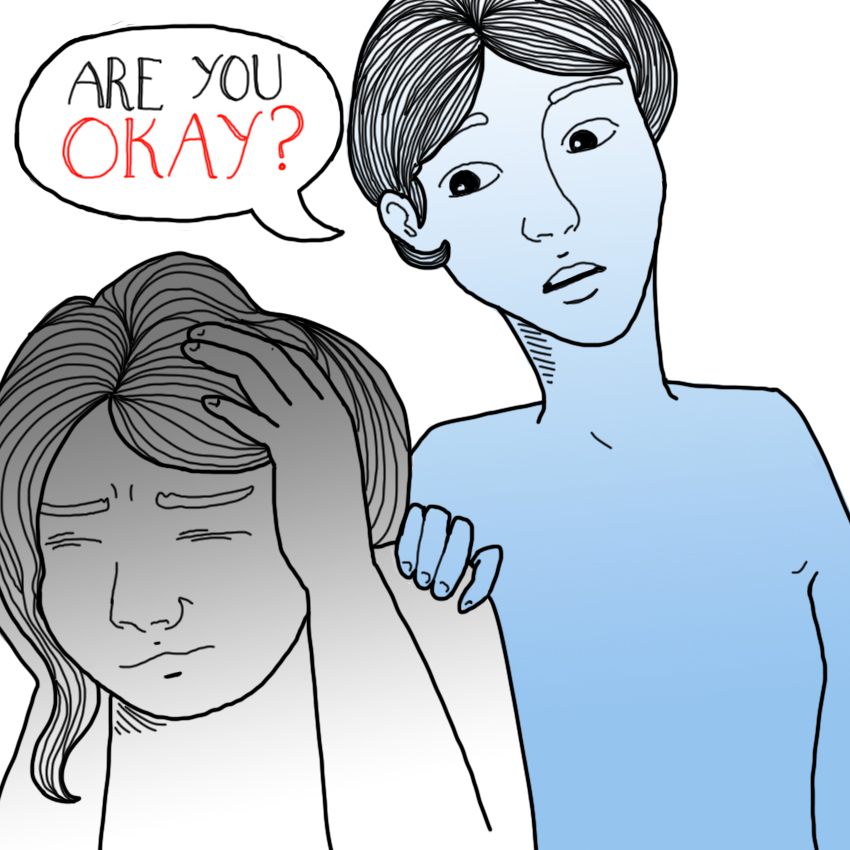
Stay calm. If you think someone nearby is having a panic attack, ask them calmly if they're okay.
Since everyone experiences panic attacks differently, you may think someone is panicking when they aren't.
When some people have panic attacks, they don't want anyone to notice. Even if they are experiencing a panic attack, they may not want to admit it or accept help, according to the National Institute of Mental Health.
#2: Ask How You Can Help
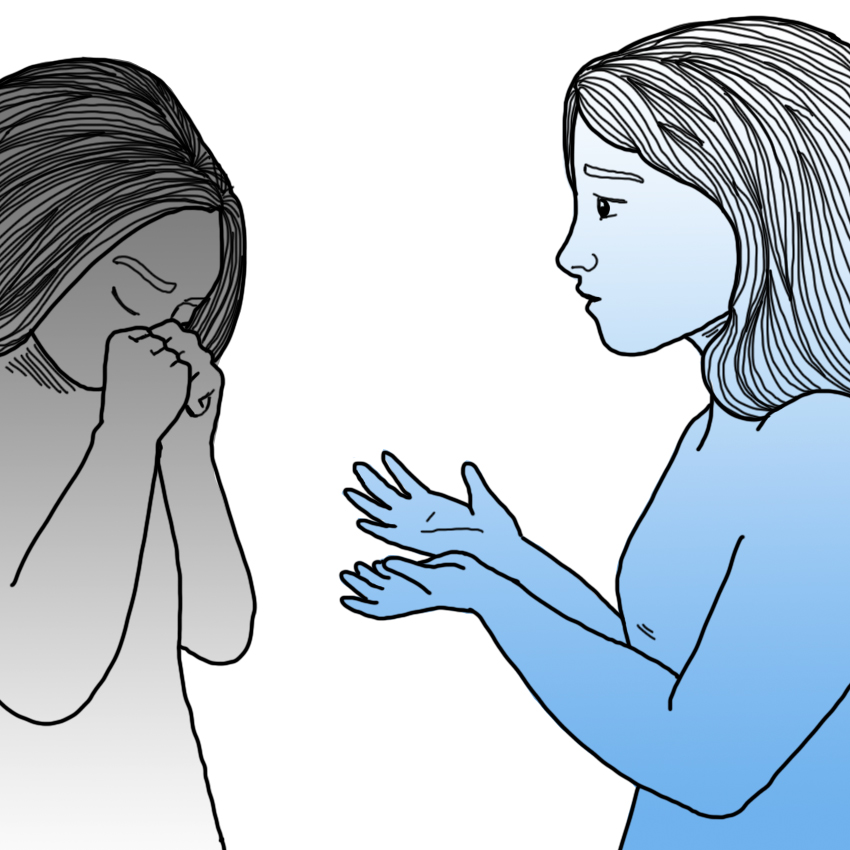
Again, since everyone has different physical reactions during panic attacks, people may need different things.
If you know someone near you is having a panic attack, one of the best things you can do is ask them how you can help.
At this stage, the person having a panic attack can tell you what they need most, even if that's just space.
#3: Remind Them You're There
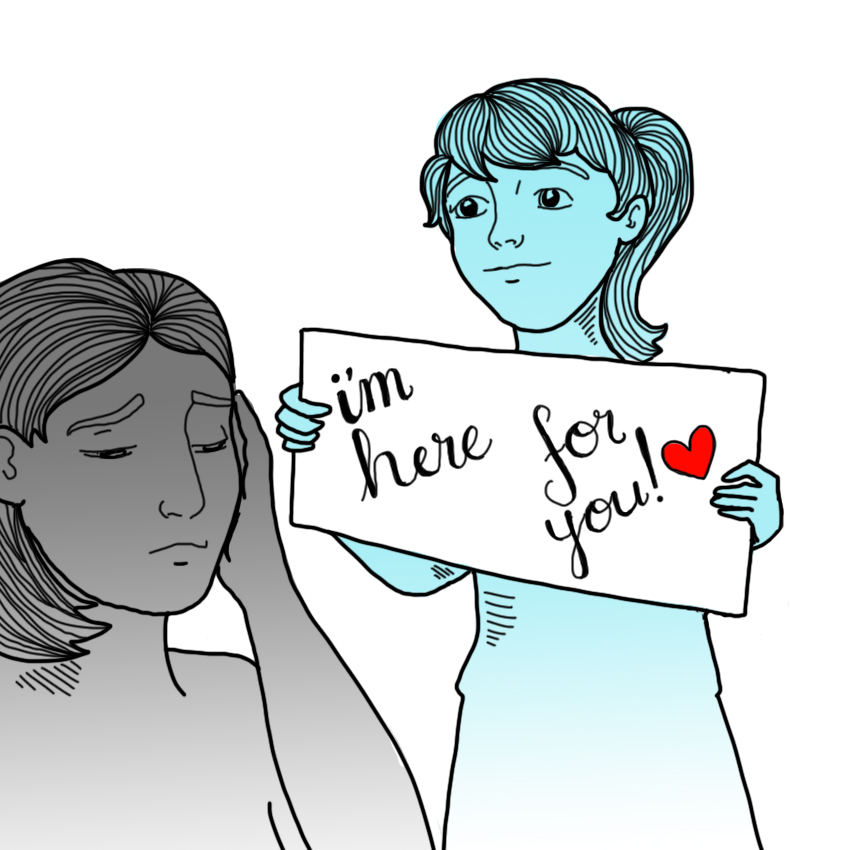
Many people can't ask for or receive help during a panic attack, because it's so overwhelming.
If you don't know what to do to help, just remind your friend that you're there if they need you.
WebMD explains: "The best thing you can do to help with a panic attack is to stay and help your friend ride it out. Most panic attacks ease up in 20 to 30 minutes."
#4: Tell Them They'll Be OK
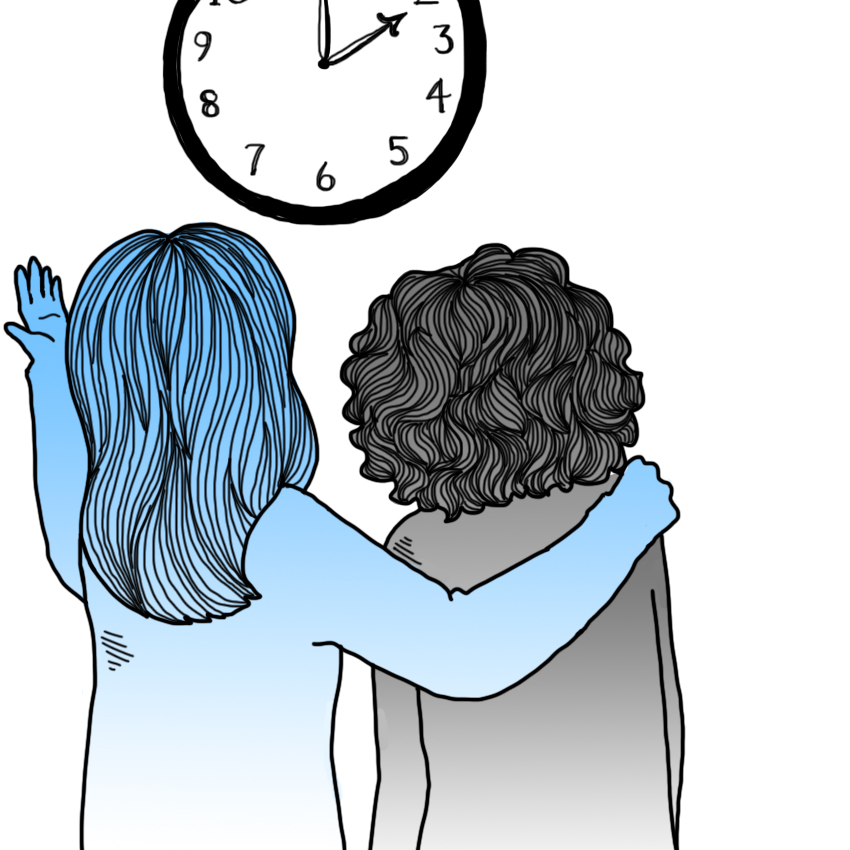
The University of Michigan Health Service explains that for many people, panic attacks are characterized by sudden feelings of terror, danger, or impending doom. They might feel like they're having a heart attack, like they can't breathe, or like they're going to die.
If a loved one is having a panic attack, Anxiety.org recommends reminding them that they'll be OK and that the anxiety will eventually subside.
According to the Anxiety and Depression Association of America, "Panic attacks typically reach their peak level of intensity in 10 minutes or less and then begin to subside." Even though the time surrounding the attack can be absolutely terrifying, it can be helpful to remind the person that anxiety can't keep increasing forever.
#5: Listen
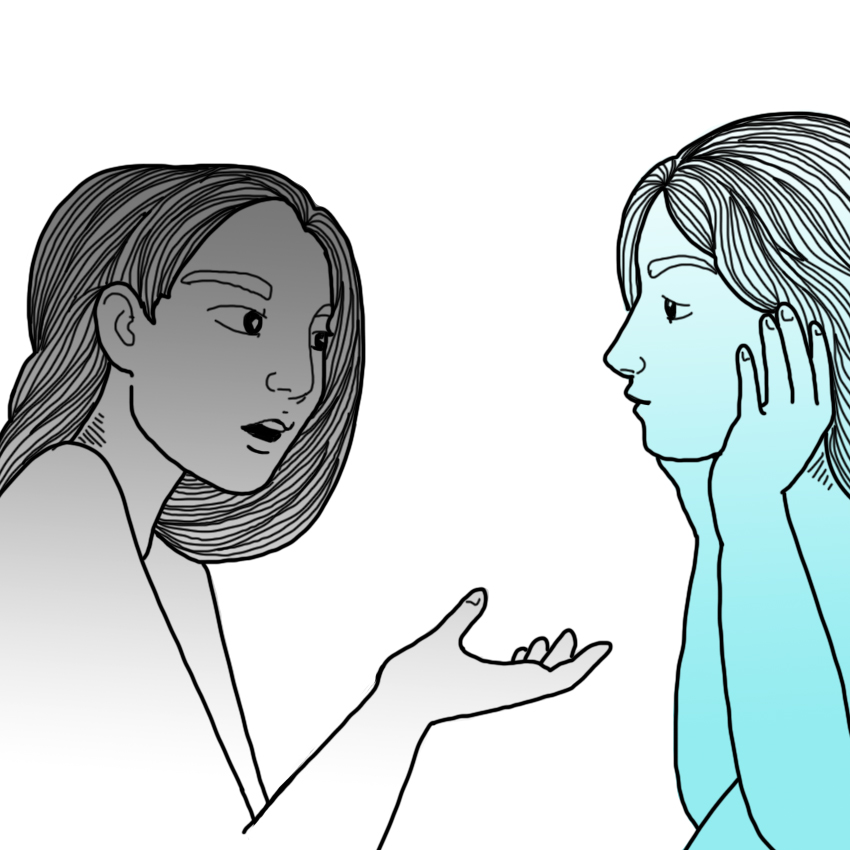
When your friend's panic attack subsides, ask them if they want to talk about it.
"Hours or several days after an attack has subsided might be a better time to discuss concerns or patterns that you have noticed," explains Anxiety.org.
WebMD explains that you should "do your best to be understanding, positive, and encouraging."
#6: Offer Water, Fresh Air, A Damp Cloth
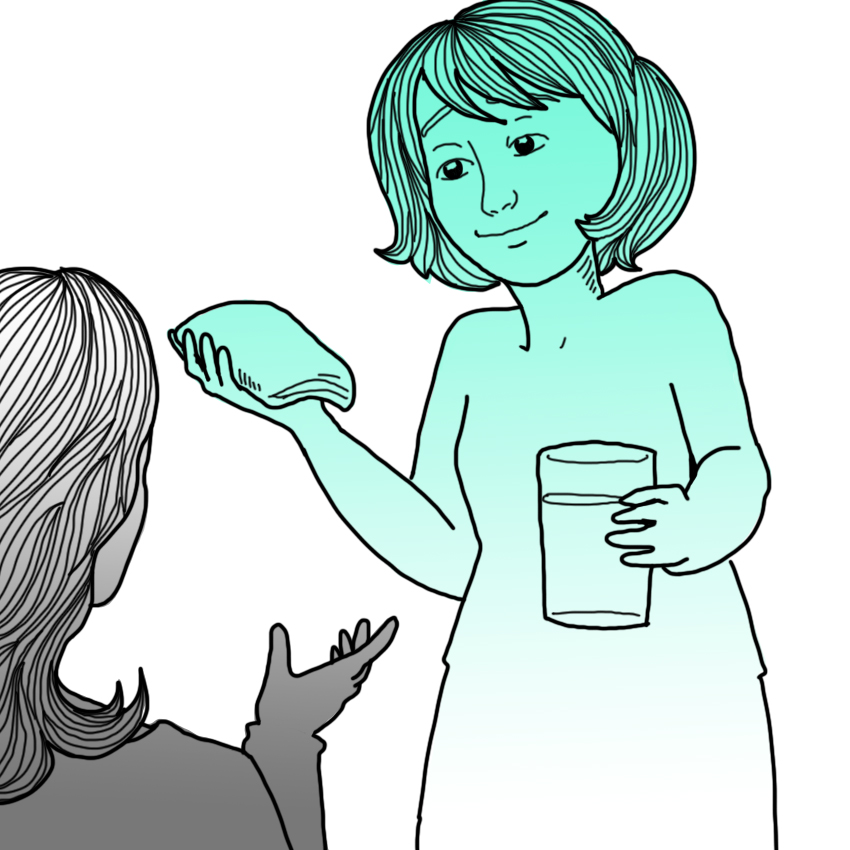
If you know the symptoms of someone's panic attacks, try to keep track of what helps them.
Some people might need fresh air, a walk outside, a damp cloth, or a glass of cold water.
Ask your friend after a panic attack if there's anything you can do the next time they start to have severe anxiety.
What Not To Say
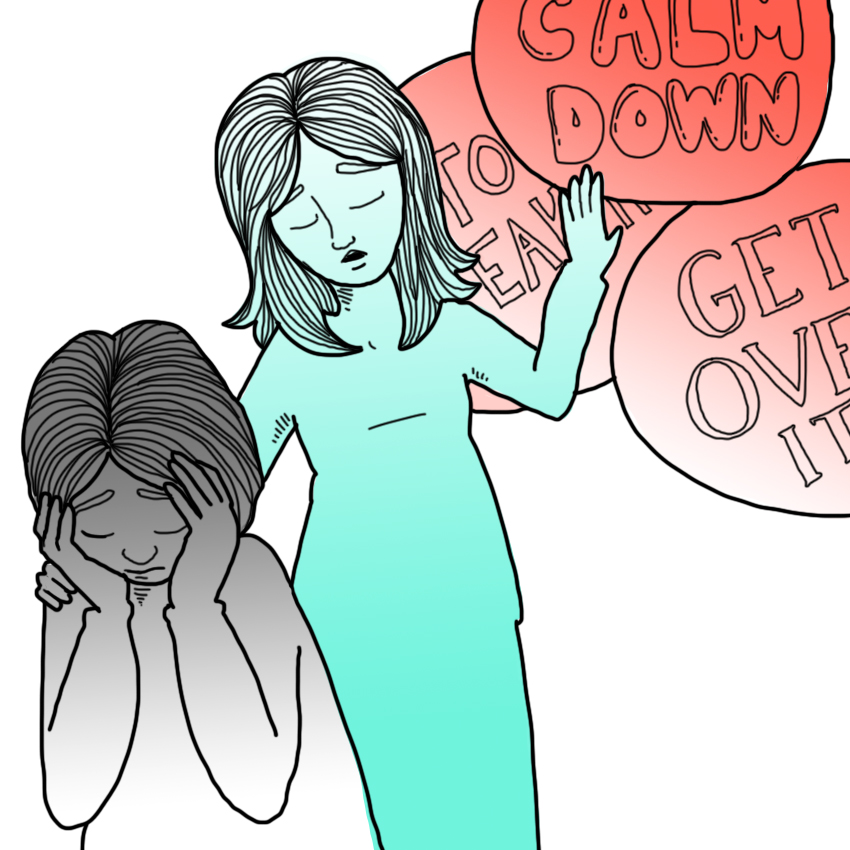
Just as there are things you should say, there are things you should avoid saying to someone having a panic attack.
"Avoid saying things like: 'Don't be anxious. Let's see if you can do this. You can fight this. What should we do next? Don't be ridiculous. You have to stay. Don't be a coward.' These phrases tend to blame the individual for the anxiety," explains the University of Michigan's University Health Service.
What Not To Do
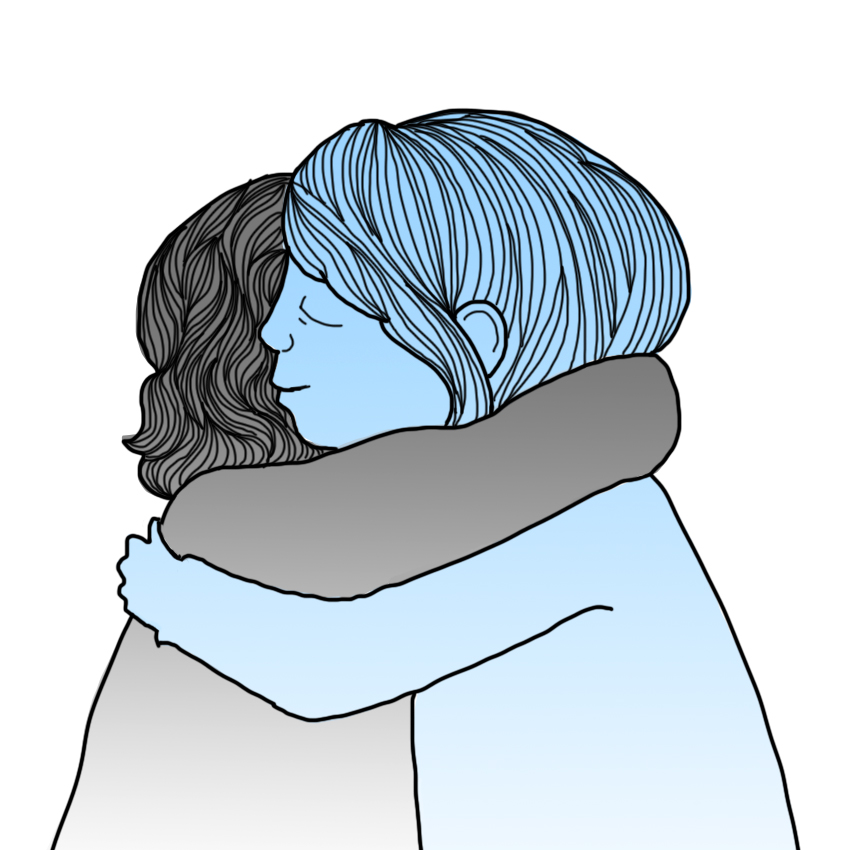
When you're around someone having a panic attack, be present. Don't diminish what they're going through, don't make fun of them, don't get mad at them, and never ditch them while they're panicking.
If you think people should know more about panic attacks and anxiety, please SHARE this article with your friends!

